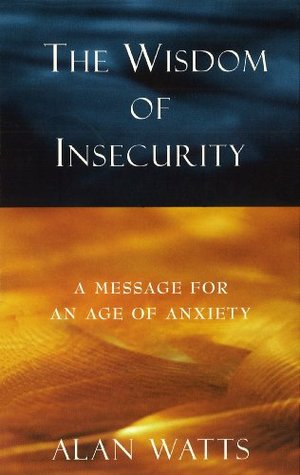More on this book
Community
Kindle Notes & Highlights
Read between
January 12 - February 9, 2020
The meaning of freedom can never be grasped by the divided mind. If I feel separate from my experience, and from the world, freedom will seem to be the extent to which I can push the world around, and fate the extent to which the world pushes me around. But to the whole mind there is no contrast of “I” and the world.
You can only live in one moment at a time, and you cannot think simultaneously about listening to the waves and whether you are enjoying listening to the waves. Contradictions of this kind are the only real types of action without freedom.
Events look inevitable in retrospect because when they have happened, nothing can change them. Yet the fact that I can make safe bets could prove equally well that events are not determined but consistent. In other words, the universal process acts freely and spontaneously at every moment, but tends to throw out events in regular, and so predictable, sequences.
So long as there is the motive to become something, so long as the mind believes in the possibility of escape from what it is at this moment, there can be no freedom.
Everyone has love, but it can only come out when he is convinced of the impossibility and the frustration of trying to love himself. This conviction will not come through condemnations, through hating oneself, through calling self-love all the bad names in the universe. It comes only in the awareness that one has no self to love.
Definition is simply making a one-to-one correspondence between groups of sense data and noises, but because noises are sense data, the attempt is ultimately circular. The real world which both provides these data and the organs wherewith to sense them remains unfathomably mysterious.
“The Now-moment in which God made the first man and the Now-moment in which the last man will disappear, and the Now-moment in which I am speaking are all one in God, in whom there is only one Now. Look! The person who lives in the light of God is conscious neither of time past nor of time to come but only of one eternity. . . . Therefore he gets nothing new out of future events, nor from chance, for he lives in the Now-moment that is, unfailingly, ‘in verdure newly clad.’”
To see, however, that life is complete in each moment—whole, undivided, and ever new—is to understand the sense of the doctrine that in eternal life God, the undefinable this, is all-in-all and is the Final Cause or End for which everything exists.
the fulfilment of the divine purpose does not lie in the future. It is found in the present, not by an act of resignation to immovable fact, but in seeing that there is no one to resign.
“The highest to which man can attain is wonder; and if the prime phenomenon makes him wonder, let him be content; nothing higher can it give him, and nothing further should he seek for behind it; here is the limit.”


